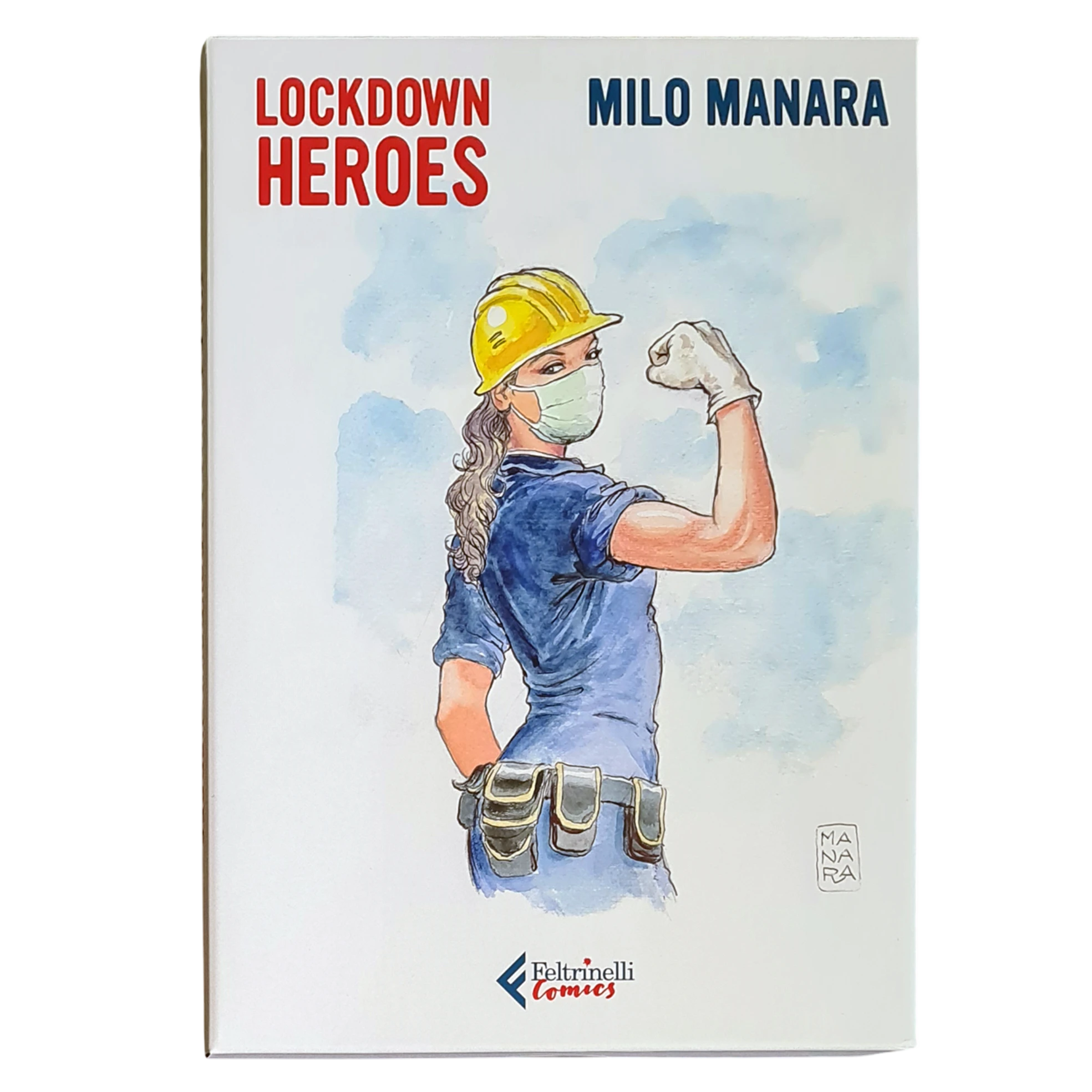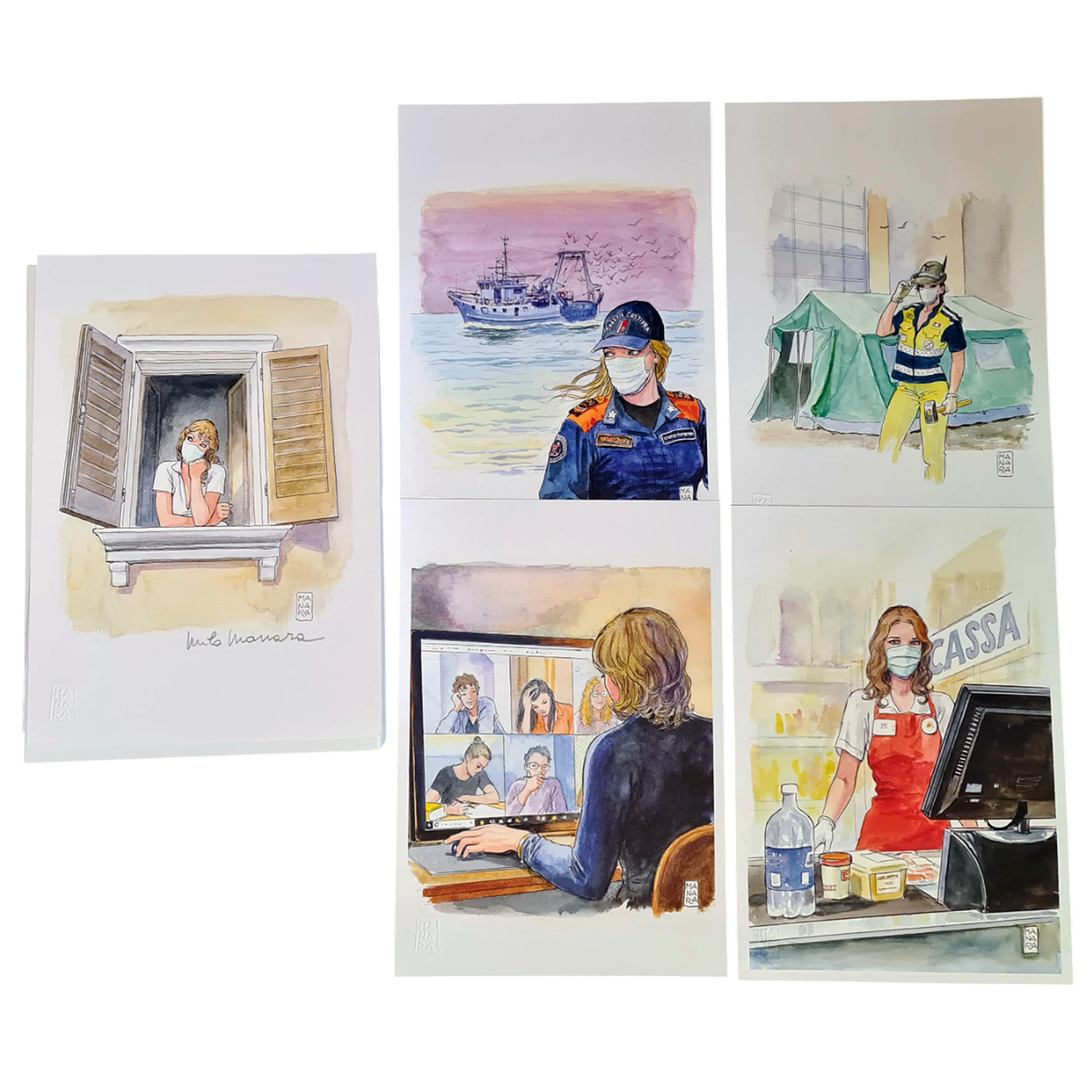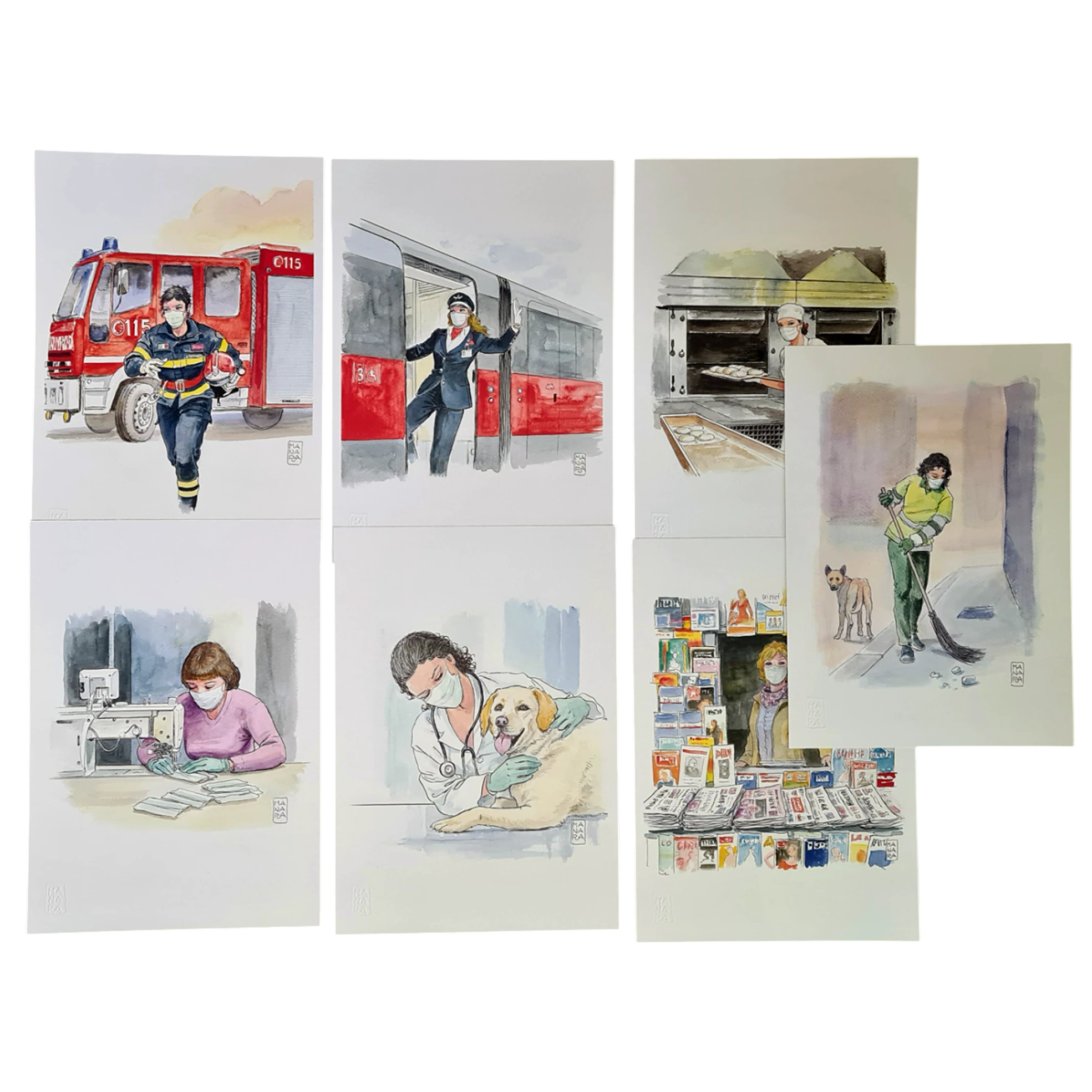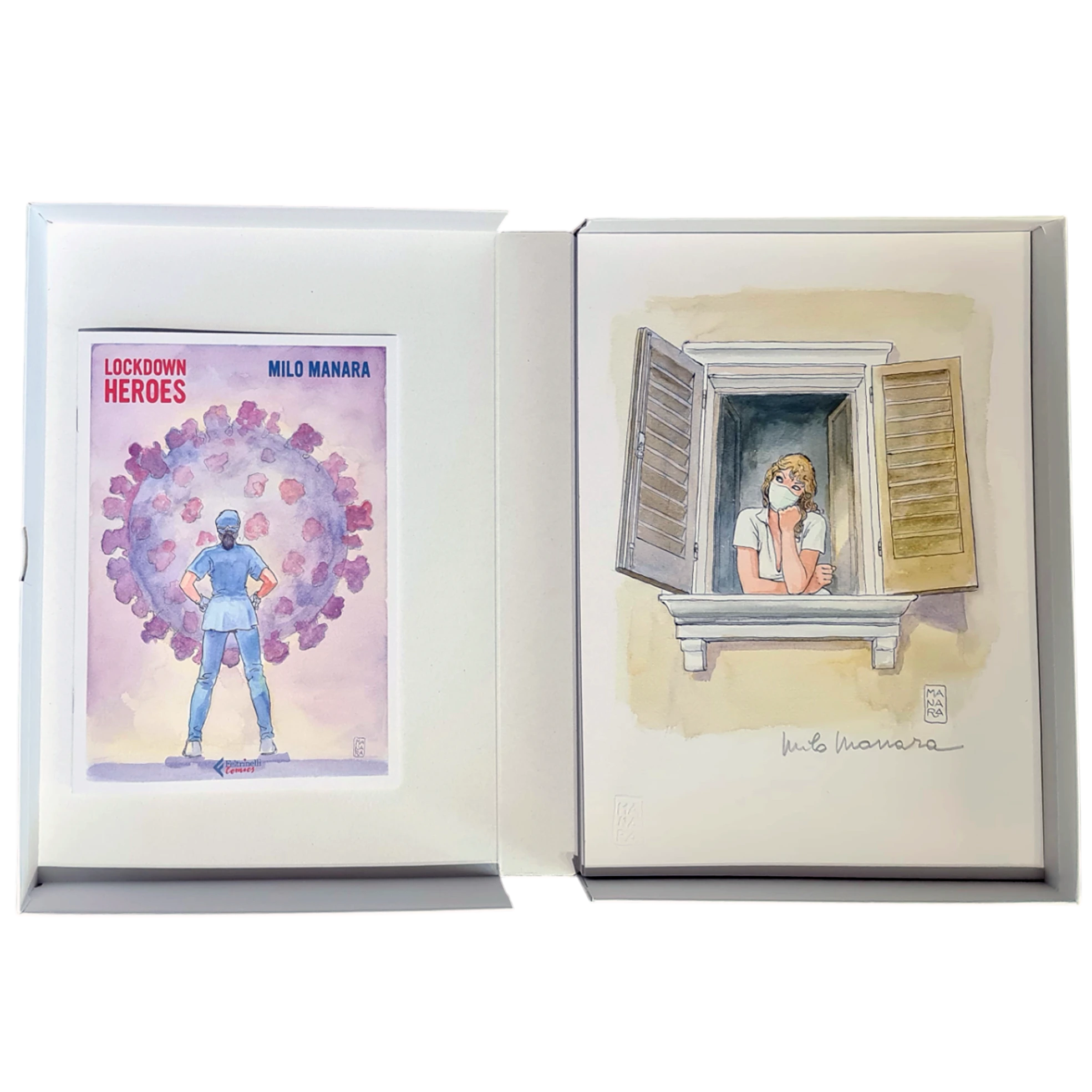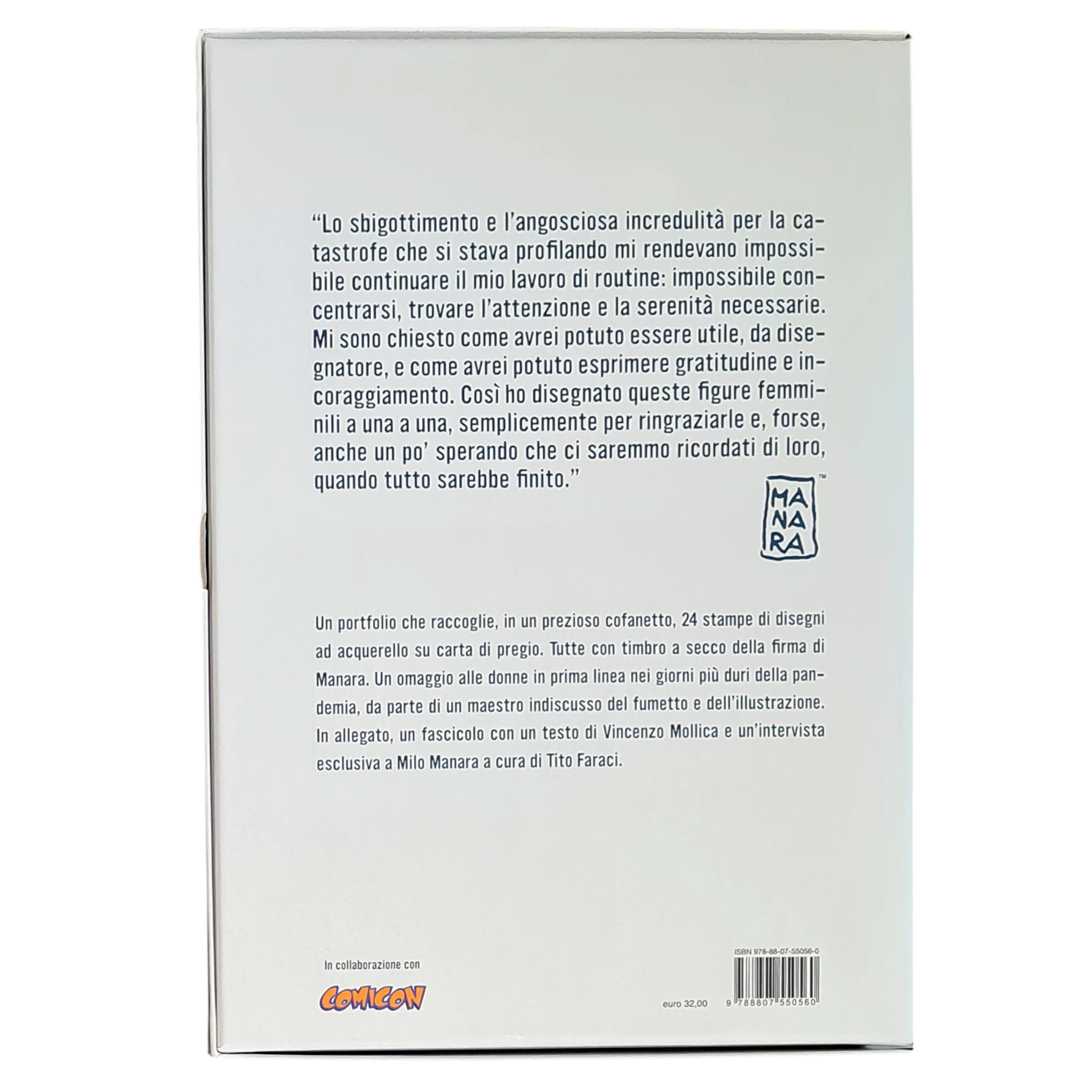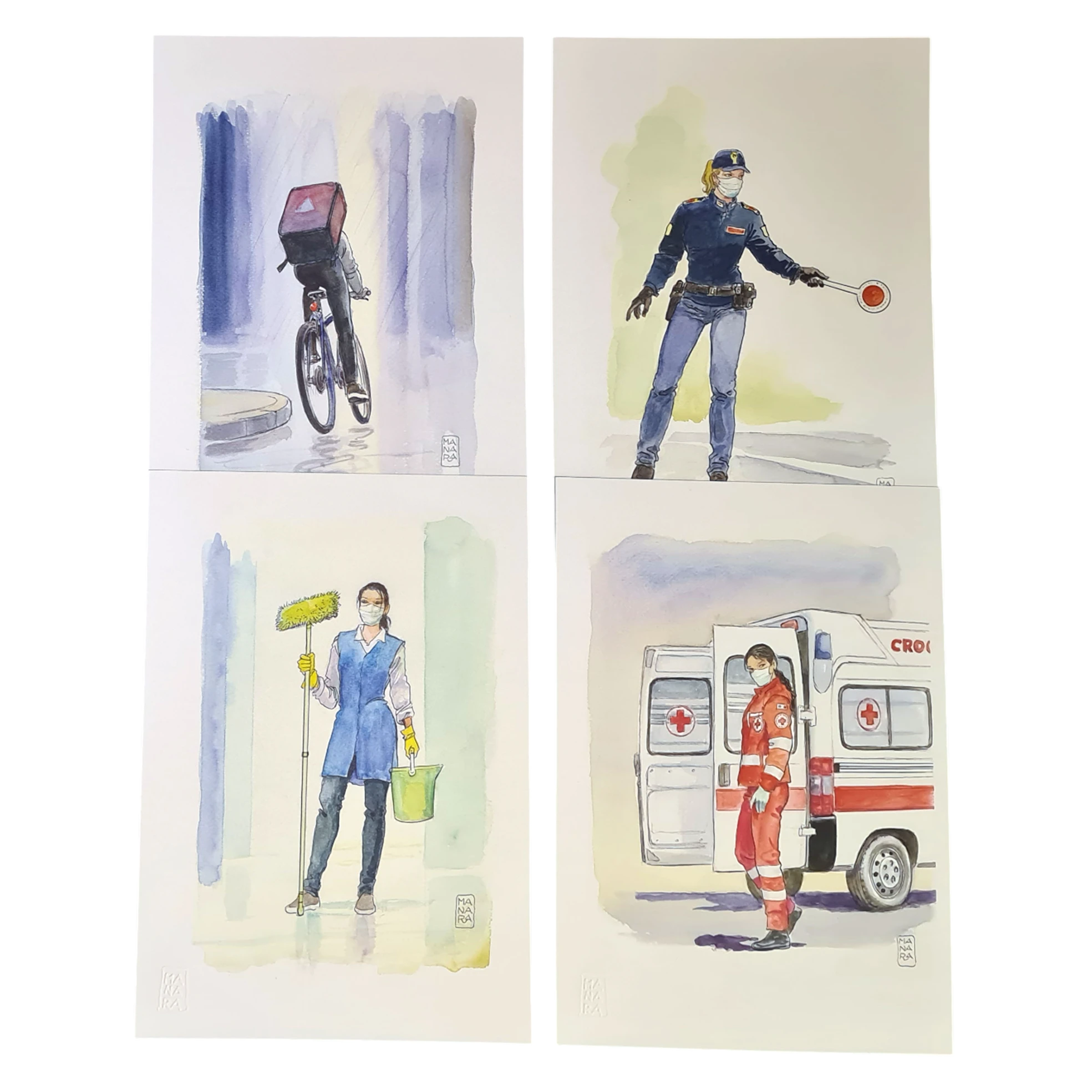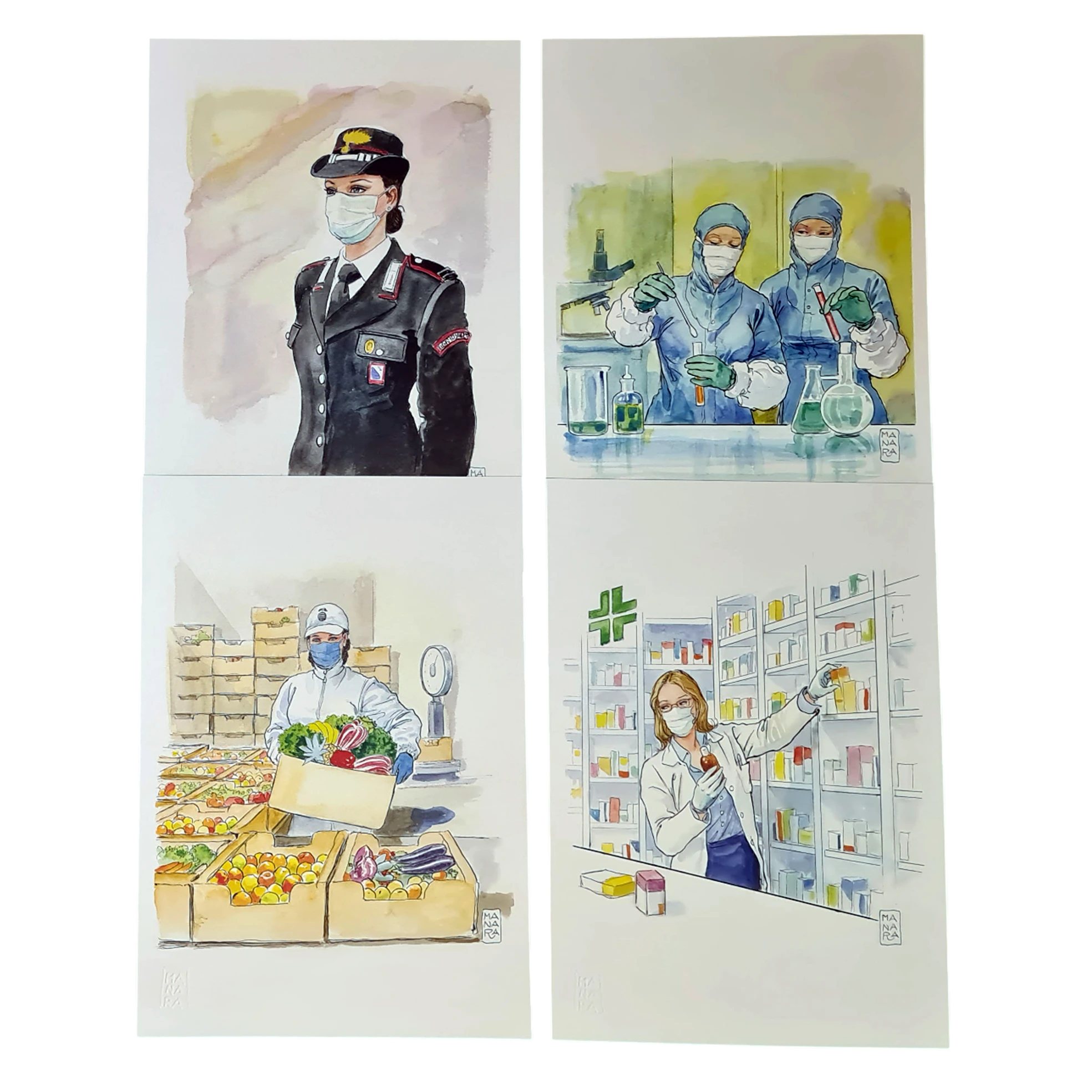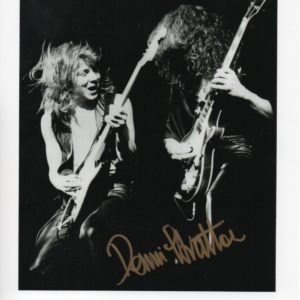Description
Maurilio Manara (born 12 September 1945), known professionally as Milo Manara, is an Italian comic book writer and artist.
Career
After architecture and painting studies, he made his comics debut in 1969 drawing for Genius, a Fumetti neri series of pocket books from publisher Furio Vanio in the wake of the popularity of Kriminal and Satanik. In 1970, he illustrated for the magazine Terror, and starting in 1971 drew the erotic series Jolanda de Almaviva written by Francisco Rubino, issued in small format by publisher Erregi. Joining the youth magazine Il Corriere dei Ragazzi, he worked with Rubino, Carlo Barbieri, Mino Milani and Silverio Pisú. With Pisú Manara launched the publications Telerompo and Strategia della Tensione in 1974 and the series Alessio, Il Borghese Rivoluzionario, and with writer Mino Milani the series La parola alla giuria in 1975. Manara and Pisú later went on to publish Lo Scimmiotto (The Ape) along the story of the Chinese Monkey King in Alter Linus in 1976, and with Alfredo Castelli, L’Uomo delle Nevi (The Snowman) in 1978. During this period Manara began publishing work in several Franco-Belgian comics magazines including Charlie Mensuel, Pilote and L’Écho des savanes. For (A SUIVRE) Manara created the first stories featuring HP and Giuseppe Bergman, which grew to become a large body of work. The character “HP” is based on Manara’s friend, the Italian comics creator Hugo Pratt, and a collaborator on some of Manara’s most acclaimed work, initially Tutto ricominciò con un’estate indiana (1983, Indian Summer) and later El Gaucho (1991). Manara also completed two stories working with another of his heroes, Federico Fellini. In his own right Manara has been commended on his skills as a writer, as with the western L’uomo di carta (1982, The Paper Man). Manara’s reputation for producing comics that revolve around elegant, beautiful women caught up in unlikely and fantastical erotic scenarios became solidified with work such as Il Gioco (1983, also known as Click or Le Déclic), about a device which renders women helplessly aroused; Il Profumo dell’invisibile (1986, Butterscotch), introducing the heroine Miele (Honey) and a sweet-smelling body-paint which makes the wearer invisible; and Candid camera (1988, Hidden Camera), featuring the same protagonist in further explicit adventures. In the following years of combining sequels, original work, and collaborations with noted creators, Manara’s production continued in this direction to explore erotic comics themes with an artistic and storytelling expression in a manner considered unique to Manara.m In the U.S. The Ape was serialised in Heavy Metal in the early 1980s and Manara received some exposure through collaborations with Neil Gaiman and other artists.

